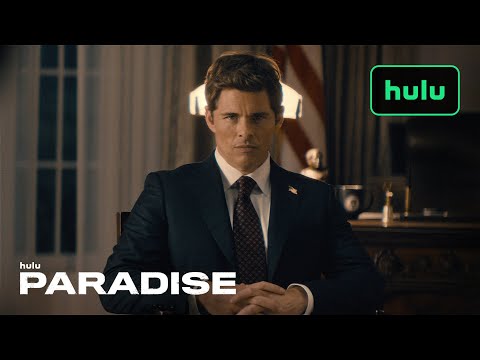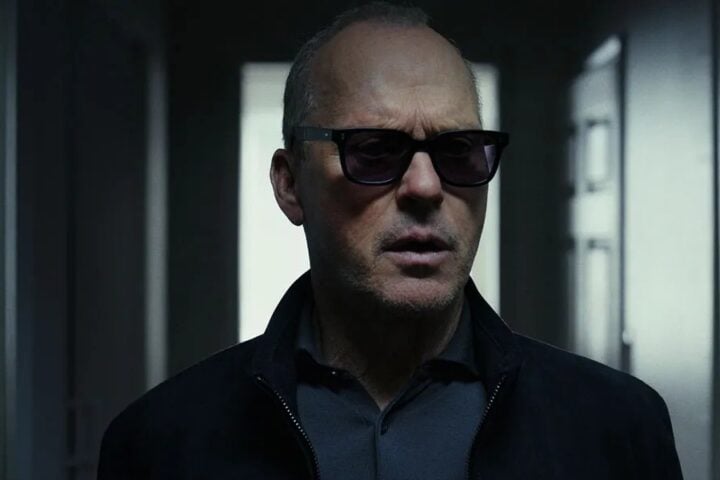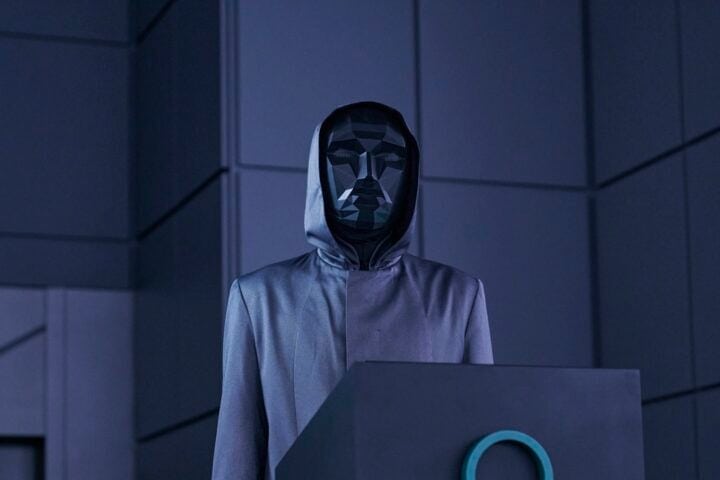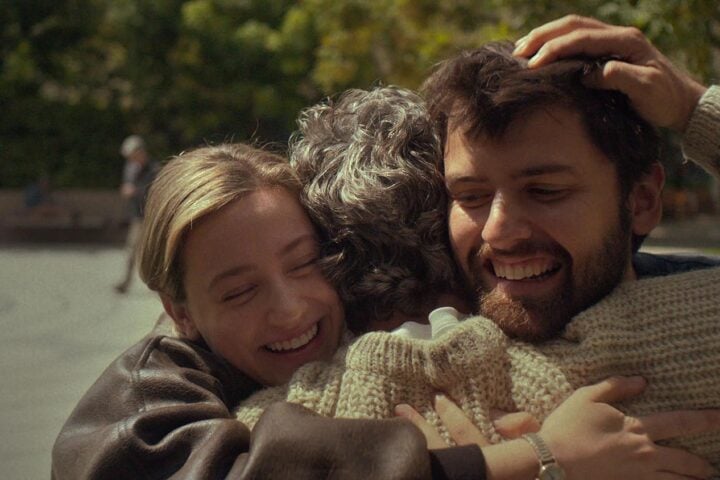The first episode of Hulu’s Paradise, about a secret service agent assigned to a former U.S. president, ends with a twist of Sugar-esque proportions. It’s a surprise reveal that alters the entire reality of the series, sideswiping it into a whole new genre. The shift isn’t completely successful, though, and Paradise, created by Dan Fogelman, often feels like two or three different shows fighting for control of its eight-episode run.
Agent Xavier Collins (Sterling K. Brown) lives in the titular suburban neighborhood alongside the man he’s paid to protect, former President Cal Bradford (James Marsden). It’s the sort of place where each day seems just like the one that came before, right up until the fateful morning when Collins arrives at work to discover that Bradford has been brutally murdered.
Collins is shocked to encounter something so awful in a place that seemed so tranquil, but that’s nothing compared to the surprise that Paradise has in store for audiences. As the first episode comes to its conclusion, we discover that the show’s uncannily perfect vision of Americana is a lie of sorts, as the last remnants of humanity, following a global disaster, have been living out their lives inside a massive underground bunker beneath an artificial sky.
Paradise follows Collins as he attempts to solve Bradford’s murder and expose the unsavory truths about the things going on behind the scenes of this too-good-to-be-true society. The series regularly skips back in time to explore life before the disaster, focusing on the relationship between Collins and Bradford and delving into the lives of some of Paradise’s other residents.

In the post-disaster timeline, Collins finds himself dealing with another incredibly powerful person: Samantha “Sinatra” Redmond (Juliane Nicholson), a tech billionaire and one of the architects behind Paradise. She’s revealed to have lived a life marked by great fortune and terrible tragedy, and it’s clear that her world ended long before everyone else’s did.
The first couple of episodes set up a number of tantalizing questions involving missing items and malfunctioning security cameras, but we pretty quickly get a clear sense of how the murder played out and who the bad guys are, so that we’re really just waiting for the series to fill in a few minor details. Paradise also often leans on clichés and clunky exposition, like a character reaching over to the empty side of their double bed to clue us in that they’ve lost someone or berating their “worthless idiot of a nephew” so that we know how they’re related.
While the initial reveal positions it as both a crime thriller and a sci-fi mystery, Paradise also seems to harbor ambitions of being a West Wing-style political drama. We first meet Bradford in the Oval Office as he throws wisecracks at Collins before delivering a heartfelt speech about what it means to be the man who a nation puts its trust in, accompanied by the score’s swelling strings. The series even borrows liberally from Aaron Sorkin’s playbook, like dropping in esoteric bits of lingo, nicknames, and sports factoids at the start of an episode and then circling back to explain them later, or having a character answer a question with an anecdote that seems like a non sequitur, only for it to loop around to something profound and pertinent.
The show’s political aspects sometimes feel out of place in what is otherwise a dystopian whodunnit, but the dialogue is snappy and Marsden makes for a charming POTUS. He nails the “guy you could have a beer with” appeal that every presidential candidate aspires to, affably bantering away while Brown’s stoic secret serviceman provides him with the ultimate straight man. Not everything Paradise does works, but the “The West Wing at the End of the World” hook of the show is reasonably compelling, and easily propelled by the charisma of its two leads.
Since 2001, we've brought you uncompromising, candid takes on the world of film, music, television, video games, theater, and more. Independently owned and operated publications like Slant have been hit hard in recent years, but we’re committed to keeping our content free and accessible—meaning no paywalls or fees.
If you like what we do, please consider subscribing to our Patreon or making a donation.






